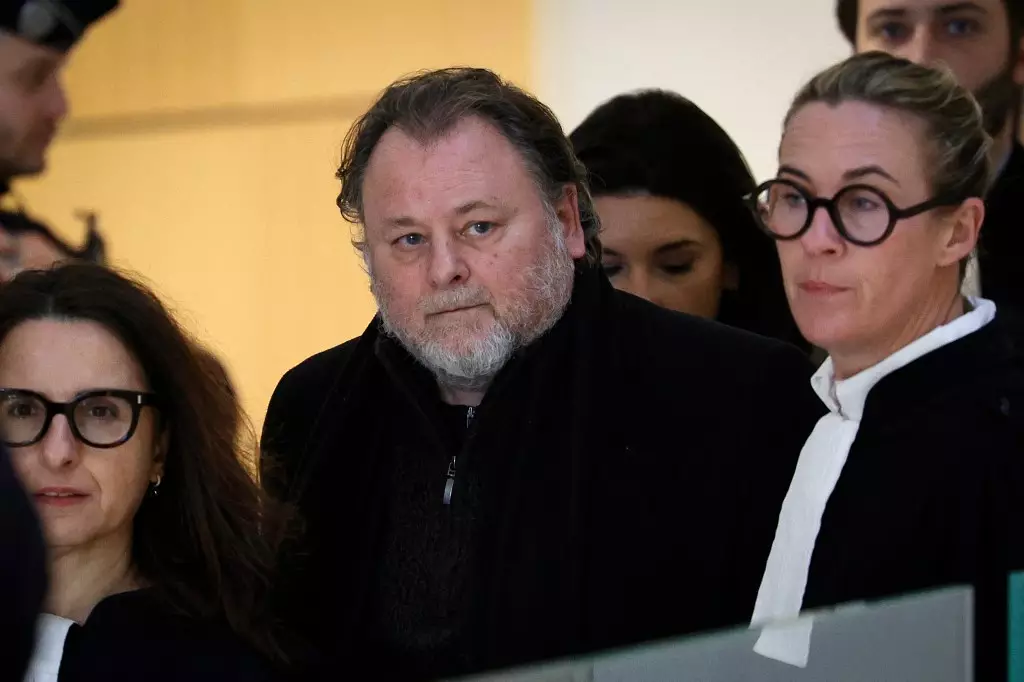Christophe Ruggia, a prominent figure in the French film industry, has recently been sentenced to two years of house arrest, a pivotal outcome that encapsulates the ongoing struggle for accountability within the realm of sexual misconduct in cinema. This judgment follows a grueling trial where actress Adèle Haenel publicly detailed accusations of sexual assault against Ruggia, marking a significant moment in France’s #MeToo movement. The case not only highlights individual accountability for heinous actions but also raises broader questions about the status quo in an industry that has often been reluctant to confront uncomfortable truths.
In December, Ruggia’s conviction was met with a request from the Paris prosecutor’s office for a five-year prison term, of which three years would have been suspended. However, the two-year custodial sentence under house arrest reflects a complicated judicial response that aligns with global debates around the prosecution of sexual predators in positions of power. For Haenel, this ordeal began six years ago, when she bravely came forward in a revealing interview where she recounted the molestation she endured starting at the tender age of 12—an age where she was trying to navigate her budding career while being victimized by a man twice her age.
Resistance and Denial: Courtroom Dynamics
The courtroom dynamics during the trial were charged, illustrating the emotional weight of the accusations. Ruggia’s defense was marred by statements that suggested Haenel’s claims were an act of vengeance, a defense quickly deconstructed by her legal team. This narrative of revenge not only undermines the severity of the allegations but also perpetuates harmful stereotypes about victims of sexual assault. The courtroom erupted into chaos when Haenel confronted Ruggia directly, demanding he cease his defense arguments that claimed to depict her as a victim needing protection. Her actions in that moment served as a powerful reminder of the trauma victims endure during legal processes, often battling both societal stigma and the narratives advanced by their aggressors.
This trial, seen as a pivotal moment in France’s evolving stance on sexual violence, mirrors broader currents within the #MeToo movement. Notably, Haenel’s courageous decision to speak out came at a time when such accusations against powerful figures were still met with skepticism and hostility. She risked her hard-earned career in a moment that demanded immense personal sacrifice, yet her actions may very well have laid the groundwork for a cultural shift within the French film industry.
The Broader Context: Cultural Change and Institutional Response
The cultural landscape in France regarding sexual violence has been slow to evolve, and the 2020 Césars ceremony underscored this reality. The awarding of Roman Polanski—a filmmaker with unresolved sexual assault allegations—was perceived as an affront to victims and advocates alike. Haenel’s vehement protest against the ceremony was emblematic of her dissent against an industry that appeared to normalize predators.
Following the backlash of the #MeToo movement, significant changes have taken place, culminating in new regulations from the Césars Academy, aimed at preventing individuals under investigation for sexual violence from being nominated. This regulatory response is a step forward but also reflects the ongoing need for systemic change across all sectors. The recent outcry from prominent figures, like actress Judith Godrèche, reignites the dialogue on accountability and the exercise of power within the entertainment industry.
The conviction of Christophe Ruggia is a landmark moment not only for Haenel but for a film industry transitioning towards greater accountability. The case serves as a reminder that speaking out against wrongdoing can incite institutional change. While progress has been made, the fight against sexual violence in cinema and beyond is far from over. Only through continuous advocacy, public support, and systemic reform can we hope to redefine the boundaries of acceptability in how sexual misconduct is addressed. As Haenel reflects on her experiences and decisions, her journey embodies the resilient spirit of those who refuse to remain silent in the face of injustice, signaling a transformative path for both individuals and institutions alike.

